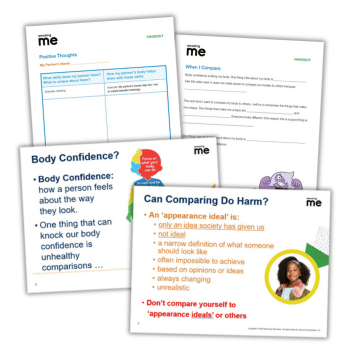“Don’t Ignore Your Wellbeing” – A Letter To Myself At The Start Of My Teaching Career

What advice would you give yourself looking back? Here's what Nancy Gedge wishes she'd known

- by Nancy Gedge
- Experienced teacher, SENCo and author Visit website

You’re 23 and you’ve just entered the teaching profession – and thus adulthood. You’ve started your first job; got your first class. The time for practise is over. Now it’s the real deal.
It’s been difficult deciding what to share with you; should it be practical advice to help your day run smoothly? Like, spend half your lunch hour marking and the other half in the staff room, connecting with your colleagues.
Laminate the lettering for your displays by all means, but remember to put them in something clearly labelled so that you can use them again when the time inevitably comes. Keep your cupboard tidy – and your desk, while you are at it.
Those letters home won’t send themselves, you won’t know they are there if you can’t see them, hidden under piles of stuff. Aim to get the majority of your planning done on Friday night (before you even think about that bottle of wine in the fridge), so that you can have the weekend to yourself, but don’t work past 9 o’clock.
Don’t ignore your health and wellbeing. Teachers are the very best at putting the children first; the worst for ignoring themselves. Don’t shrug off that sore throat, the aching ears or that funny rash; the school won’t fall apart if you can’t make it in. And make sure you drink enough water and visit the toilet at regular intervals.
Eat a piece of fruit or a bit of a vegetable once in a while to keep the doctor away, and don’t rely too much on takeaways. Avoid all those custard creams – you’ll thank me for it when your winter trousers still fit you when November comes around again.
And while I’m at it, take care of your voice. It is your best and most valuable teaching tool. Get more sleep, drink less alcohol and find time to exercise. Make time for you.
Be fair and firm with your class. I know it’s a cliche, but remember that some of them don’t have adults in their lives to do that for them. Let them know you have high expectations, that what they do matters, both in and out of class.
Move around the room so that no one thinks they can hide and get away with doing anything less than their best. Don’t sit at the teacher’s desk, tied to the computer all day long. (Which reminds me, remember to always, always have a tech-free alternative.)
As you get to know your class as individuals, accept the complexity of SEND – the label is just that; a set of letters that tell you little about a child. A set of letters that can get in the way of knowing them, in a million little subtle ways.
Make sure you teach those children, don’t leave it up to someone else, somewhere else. Don’t speak too fast or too slow, too soft or too loud. Think about if you’re making it easier for children with memory problems or other kinds of SEND to understand what you want them to do.
he way that you behave has a direct effect on their behaviour.
Each one of these pieces of advice could be a letter in themselves. In fact, you’ll go on to write a book about all this; a guide to teaching inclusively. But the most important thing I want to tell you is about the woman, the mother, you will become, and ask you to try to understand.
When your son is born, you’ll feel that instead of having a real child, you’ve had a monster. Instead of joy and celebration, there will be tears and commiseration.
It will be OK, but it will take a while before the scars fade. Those early experiences of diagnosis, while they won’t take away the love you feel for you son, who you will adore just as much as his younger, typically developing siblings, will echo on, especially through the primary years.
I need to warn you that while his entrance into a mainstream school, in the same uniform as the other children born in the same ward in the same year, will for you be a public declaration of his full humanity, not everyone – not every teacher – will see it the same way.
My last piece of advice to you is to do, to be, that thing that costs no money – be kind.
From Nancy
Nancy Gedge is a consultant teacher with the Driver Youth Trust and author of Inclusion for Primary School Teachers. She has also been TES Teacher Blogger of the Year. Follow her on Twitter at @nancygedge and read her blog at notsoordinarydiary.wordpress.com.










